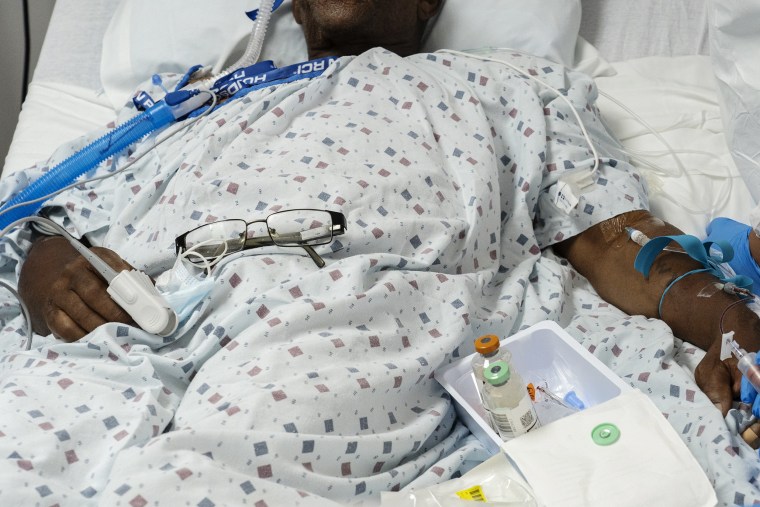Black Covid patients are less likely to receive medical follow-ups after being hospitalized and more likely to experience longer waits until they can return to work, according to a University of Michigan study published Tuesday.
The study surveyed the health outcomes of 2,217 Covid patients in Michigan 60 days after hospitalization. The results found that more than 50 percent of patients of color were readmitted to the hospital within 60 days after being released. Patients of color were also more than 65 percent more likely to experience moderate to severe financial impact because of Covid-19.
Black patients, in particular, experienced challenges returning to the workplace after recovering from Covid. On average, it took Black patients 35.5 days to return to work, the longest delay of any racial group. Black adults were also less likely to be offered workplace accommodations when they returned to work in comparison to other racial groups, according to Dr. Sheria G. Robinson-Lane, a gerontologist and the lead researcher.
"I think people only think of Covid in terms of death, you know, or having like a mild cold," she said. "They don't think about all of those spaces in between where people are having these effects post-Covid."
Robinson-Lane said one of the most surprising findings was the lack of follow-ups with physicians, noting that hospitals need to improve discharge plans to better serve patients. The physician shortage and stigma to going into the doctor's office when infected with Covid might be a contributing factor to the lack of follow-ups, Robinson-Lane said.
"So we need to do a much better job about coordinating care, to find out what it is that people need," she said. "Because we're seeing a significant number of people also that are dying within those 60 days after hospitalization."
Along with being less likely to receive follow-ups from physicians, Black patients also disproportionately died from Covid-19 last year compared to white patients, according to a study published in the National Cancer Institute's Annals of Internal Medicine.
According to the study, in 2020, Black and Native Americans were three to four times more likely to die from Covid than white patients, and Latinos were two times more likely.
"Although racial/ethnic differences in Covid-19 death rates have been profound, focusing on Covid-19 deaths alone may underestimate the extent of racial/ethnic disparities driven by the pandemic," the researchers said in the study.
To address these disparities, Robinson-Lane suggests that more health care systems implement Covid-specific care clinics to help people better manage their infection, including those who suffer from ongoing symptoms due to long-Covid. She added that more accessible social services targeted at Covid patients could help people who have been hurt financially.
"That can be a very challenging landscape to navigate by oneself," she said.
As the threat of Covid-19 persists, Robinson-Lane said she is very concerned about the amount of resistance to the Covid-19 vaccines.
"I'll continue to stress the importance of vaccination, of continued masking, and particularly for, you know, our essential workers that are out there and perhaps more of an exposure risk," she said.
